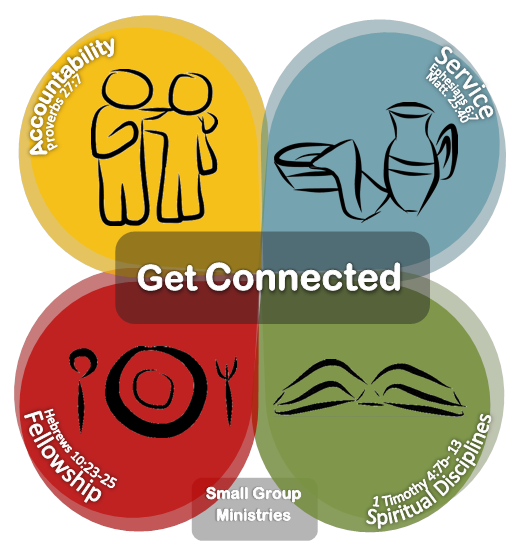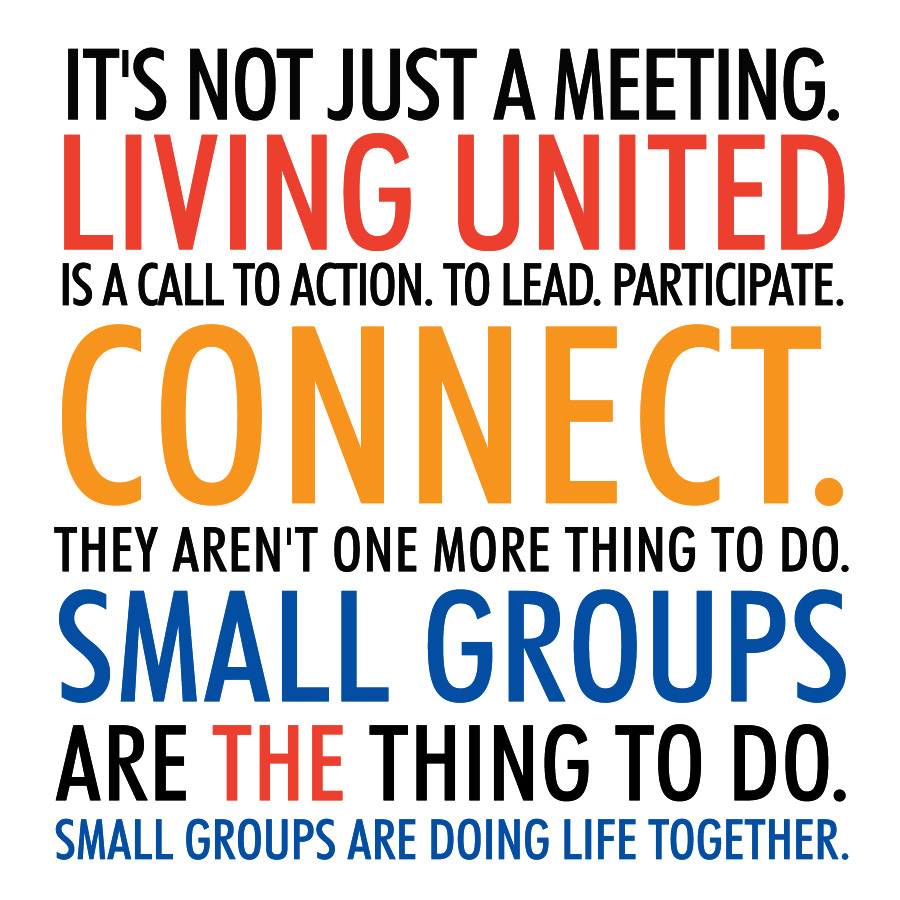What Is A Small Group?
A small group is a place where people gather in Christ's name on a regular basis to experience the transforming power of Jesus Christ through vital prayer, the application of the Bible to daily life and close caring friendships. Small groups have been an important part of Christian life from the beginning of the church. "Every day they continued to meet together in the temple courts. They broke bread in their homes and ate together with glad and sincere hearts, praising God and enjoying the favor of all the people. And the Lord added to their number daily those who were being saved." (Acts 2:46-47) Small groups provide an opportunity for people to be known, loved and accepted. In larger groups it is easy to get lost in the crowd. However, the small group offers a sense of community and the likelihood of establishing lifelong friendships. Small group is compulsory for all members because it makes you connect to the church.







